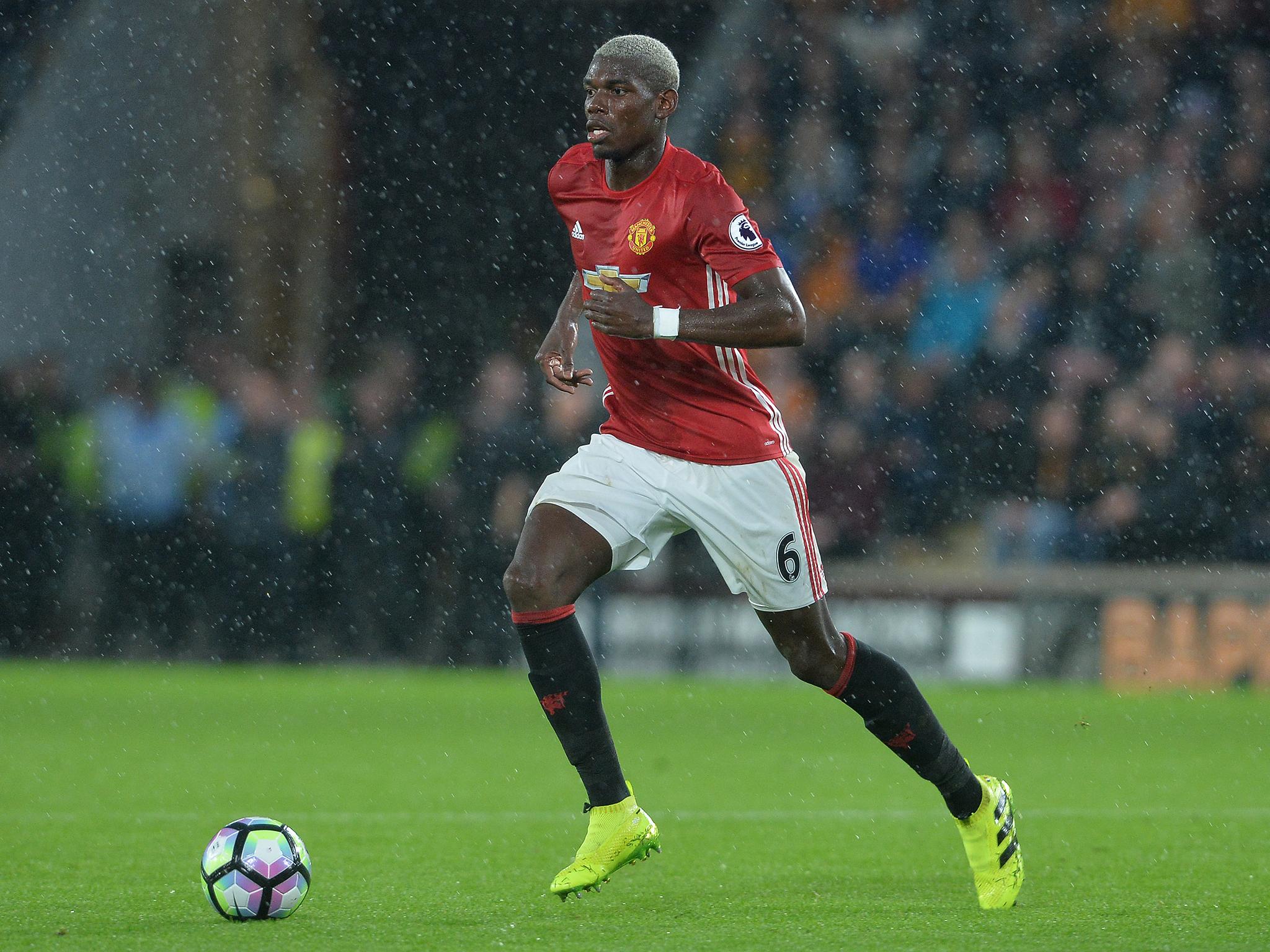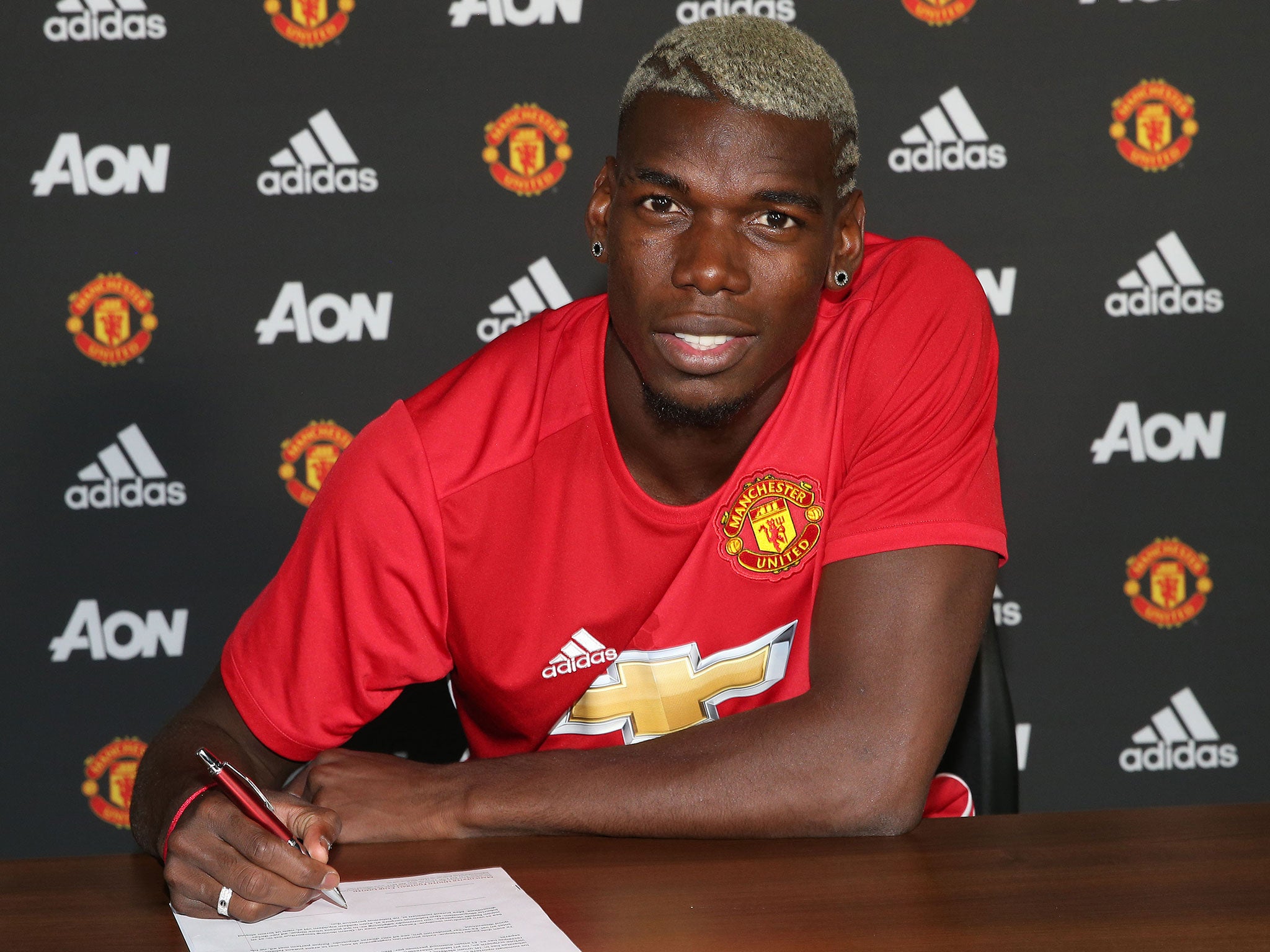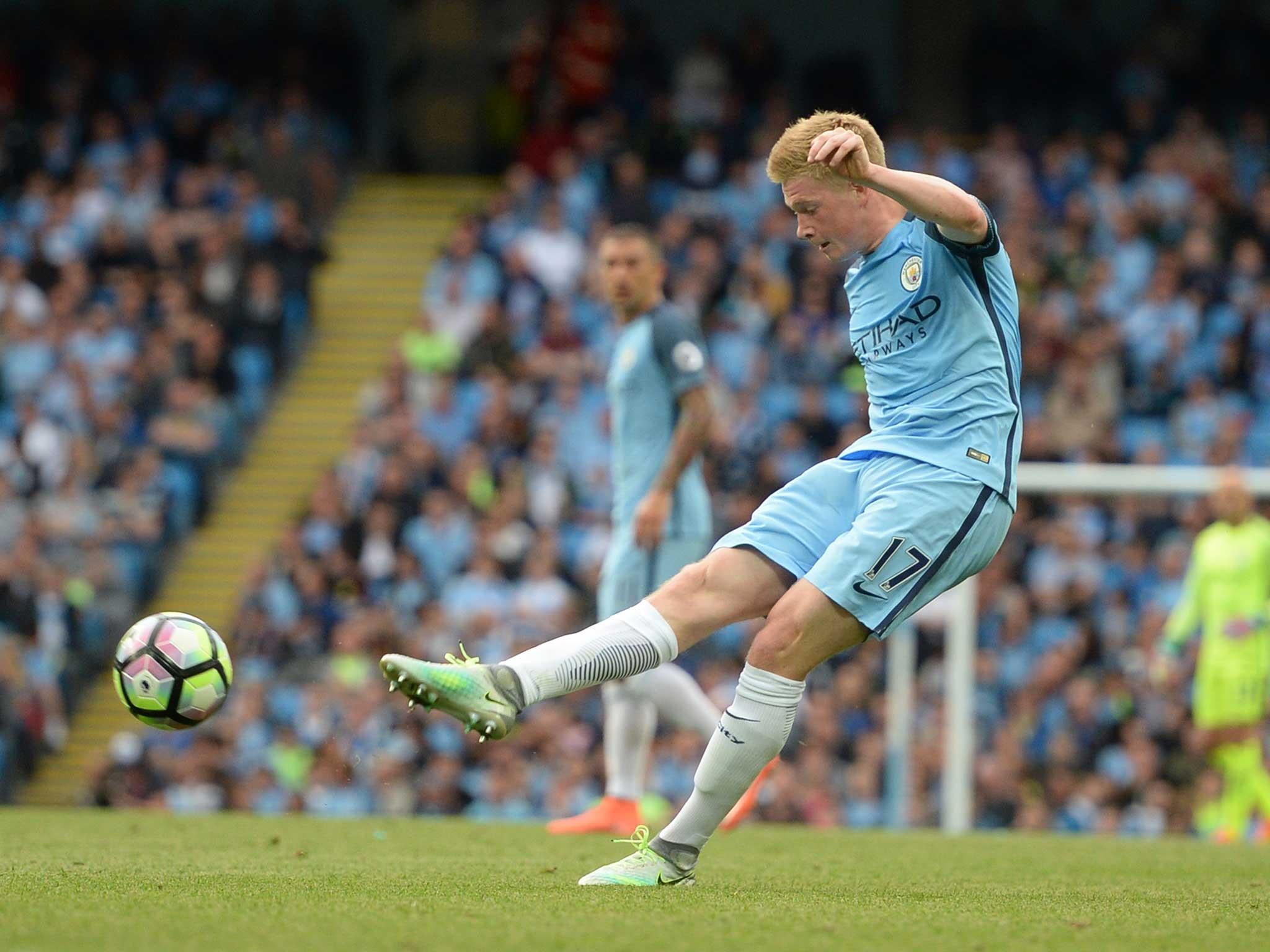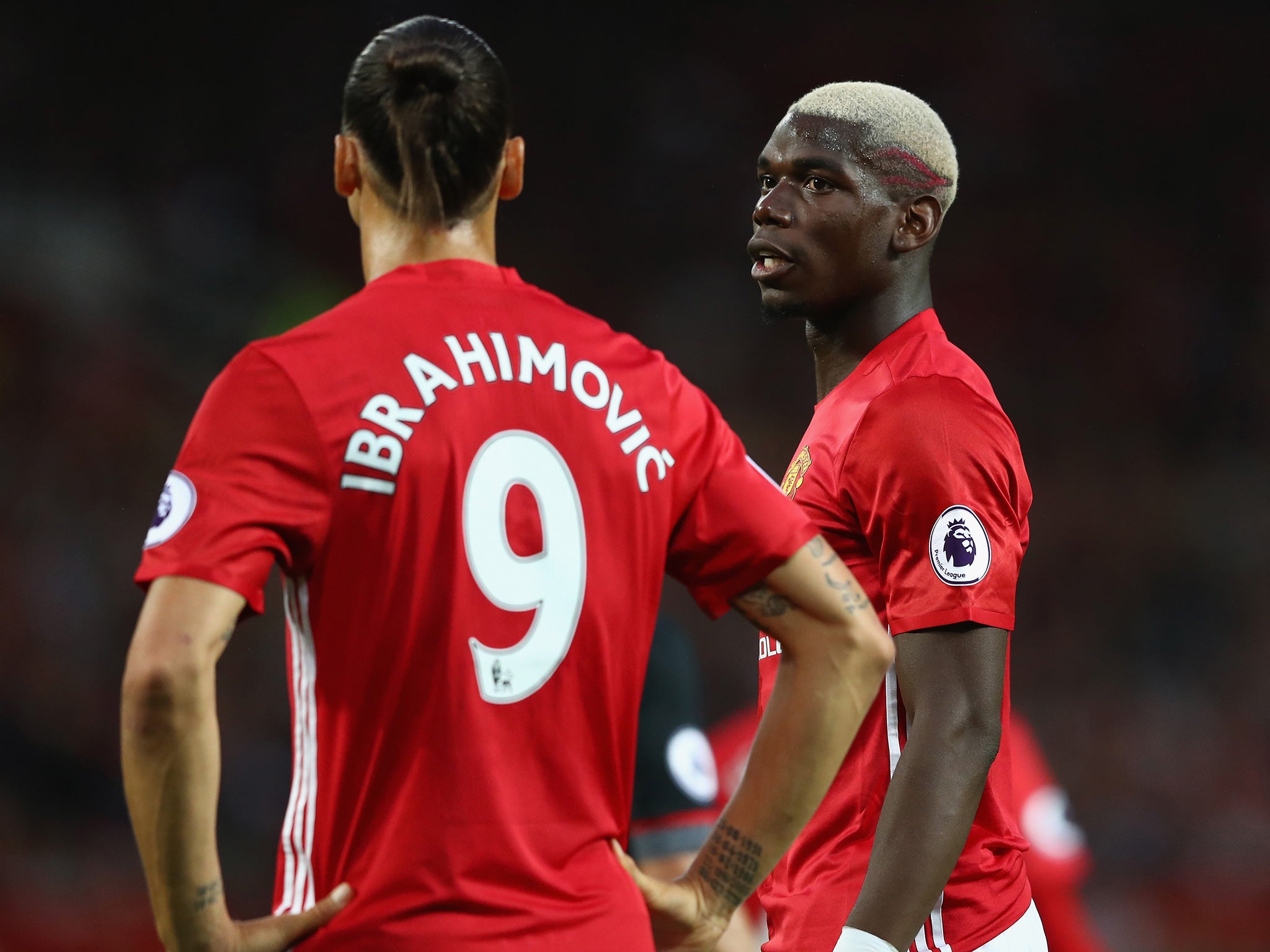Manchester United vs Manchester City: How Paul Pogba and Kevin De Bruyne became England's most expensive
The two midfielders will square up today, having both completed their education as players abroad, after each having an unsuccessful first spell in the English game

Your support helps us to tell the story
From reproductive rights to climate change to Big Tech, The Independent is on the ground when the story is developing. Whether it's investigating the financials of Elon Musk's pro-Trump PAC or producing our latest documentary, 'The A Word', which shines a light on the American women fighting for reproductive rights, we know how important it is to parse out the facts from the messaging.
At such a critical moment in US history, we need reporters on the ground. Your donation allows us to keep sending journalists to speak to both sides of the story.
The Independent is trusted by Americans across the entire political spectrum. And unlike many other quality news outlets, we choose not to lock Americans out of our reporting and analysis with paywalls. We believe quality journalism should be available to everyone, paid for by those who can afford it.
Your support makes all the difference.There will be another battle on Saturday, 30 yards or so from the Old Trafford dug-outs, that will decide the biggest game in English football this year. A battle between two similarly brilliant men with their own shared story, their own mirroring past: Paul Pogba and Kevin De Bruyne.
The two most expensive players in the Premier League, two of the three biggest buys ever by English clubs, will fight for the same bit of pitch tomorrow. Pogba and De Bruyne are two modern models of what a midfielder should be: technical, athletic, intelligent, decisive. They are the two marquee stars of Manchester.
But for both Pogba and De Bruyne this is their second shot at English football. Each player was signed young from his club at home, Pogba at 16 from Le Havre, De Bruyne at 20 from Genk. But neither Pogba at Manchester United nor De Bruyne at Chelsea made much of an impression on the first-team. Each player had to go away to another country, Pogba to Italy, De Bruyne to Germany, to learn the elite senior game.
This finishing school stage was crucial in turning Pogba and De Bruyne from top prospects into top players, costing top money. The most important ingredient, more than talent or even coaching, was responsibility and independence, two things often forgotten by our big clubs with their young players.
It was clear to everyone at Manchester United that Pogba was a special talent, unlike every other player his age. Even his first session with the under-16s in 2009 still stands out to those who were there. “On the first day this guy walked in with an aura about him,” defender Sean McGinty told The Independent. “When we got a first glimpse of him in training, he did things I’d never seen before. Things that were far, far ahead of a 16-year-old boy.”
Pogba was the inspiration for the United team that won the FA Youth Cup in 2011, although like any teenager he was not perfect yet. “If there was one issue, it was discipline,” remembers McGinty. “Sometimes he would lose his rag or do something stupid.” Pogba was sent off for dummying a penalty in the Youth Cup quarter-final at Anfield. “But you can see now that he has worked on it.”
The problem was that soon enough Pogba wanted to be a first-team player, and to be paid accordingly. Sir Alex Ferguson was reluctant and so Pogba felt that he had to leave to learn the game, to take the final step to the top.
But the 19-year-old who arrived at Juventus was still ultimately an individualist, a player whose childhood idol was Ronaldinho and who loved showing off his tricks in training. In his first Juventus game, the Trofeo Luigi Berlusconi friendly against Milan, Pogba nutmugged Massimo Ambrosini and got a kick in return.
Antonio Conte was just starting his second season in charge at Juventus and knew that Pogba still needed a lot of work. He dropped Pogba for a trip to Pescara as punishment for turning up late to training, and tried to coach the showboating out of him. He knew how dangerous Pogba could be, if only he kept things simple.
When Carlos Tevez arrived at Juventus he described Serie A as “the university of football”, but no-one has graduated from it in recent years with more outstanding honours from Pogba. He saw it as his role to learn from every player there. “I try to steal something in every training session,” Pogba said. “I try to take on Claudio Marchisio’s technique, or Arturo Vidal’s aggression, or the passing of Andrea Pirlo.”
Pogba knew that he had to take responsibility, but the flip-side of responsibility is trust. And Pogba felt trusted by everyone at Juventus. By Conte and his successor Max Allegri, by the fans, by the senior players, and by Andrea Agnelli and Giuseppe Marotta in the boardroom. He was described as “the son of all Juventus”.
Pogba was given the famous number 10 shirt, worn by Michel Platini and Zinedine Zidane, which means so much to the club. He was never the leader in the dressing room, with Gianluigi Buffon and Giorgio Chiellini still there. But with Pirlo and Vidal gone, he took responsibility on the pitch. Juventus started last season poorly, and Pogba did too, but he was the man who dragged them to their fourth straight title. His status, his maturity, his completeness and his value were beyond question.
Italian novelist Alessandro Baricco is a Torino fan but a huge admirer of Pogba. He told Tuttosport last year that he saw something futuristic about the French midfielder. “Pogba, like Manuel Neuer, belongs to the future of football,” he said, “uniting strength, agility and technique. There are no comparisons to the past. They are pieces of a new football chessboard.” The description could apply just as easily to Kevin De Bruyne.
Although the £55million City paid for De Bruyne was dwarfed by the £89m United spent on Pogba, it is still a huge fee in the context of English football. That £55m is three times what Chelsea sold De Bruyne to Wolfsburg for in January 2014. And yet he improved so much in Germany, and has been so good for City, that the fee makes sense.

De Bruyne, not unlike Pogba, was struggling to see his route into the first team at Chelsea three years ago. He was interested in joining Borussia Dortmund in 2013, Jurgen Klopp’s preferred replacement for Mario Goetze, but was persuaded to stay by Jose Mourinho.
When Mourinho tried to push De Bruyne, he did not react well, and barely played for the first half of the 2013-14 season. De Bruyne felt unwanted and wanted to take back control of his career. Mourinho said that he had been “crying every day that he wanted to leave” in those final months. “It was like a wall, a block. He was not ready to compete. He needs to know that he is important.”
That is why De Bruyne went to Wolfsburg, where was important, wanted, and had the team built round him. He felt the responsibility and the trust that he never did at Chelsea. Wolfsburg coach Dieter Hecking ran him hard in training and told him to work on his body in the gym.

“The time he spent here was very good for his development,” Hecking told The Independent. “The intensive training was very important for Kevin’s game. He always worked to the maximum, making ground-covering sprints.” De Bruyne had always scored highly on VO2 max tests for lung capacity, but Wolfsburg made him more powerful than ever before.
With the physique and the confidence to go with the skill and imagination he had always had, De Bruyne was able to decide games at will. “He made precisely the right decisions with astounding certainty,” Hecking remembers, “and created a lot of chances on goal for himself.” In De Bruyne’s one full season at Wolfsburg, he was the best player in Bundesliga. In the German Cup final against Dortmund, and then in the Super Cup against Pep Guardiola’s Bayern, he won the game almost single-handedly.
“Like almost any other good player, Kevin needed some time to reach the next level,” Hecking explains. The time he spent with us was very significant for him, as he was the dominant player, who everyone worked towards.”

So De Bruyne, like Pogba, is now back in England, not as a prospect, but as a ready-match match-winner. The first time these two came to the Premier League they were highly rated and valued, but not quite trusted to find their voice on the pitch. This is a modern problem with English football, where big clubs are desperate to sign Europe’s best talents but not always so keen to give them responsibility, when they already have senior players of their own. Unless that changes, they will have to keep paying finishing school fees.
Join our commenting forum
Join thought-provoking conversations, follow other Independent readers and see their replies
Comments